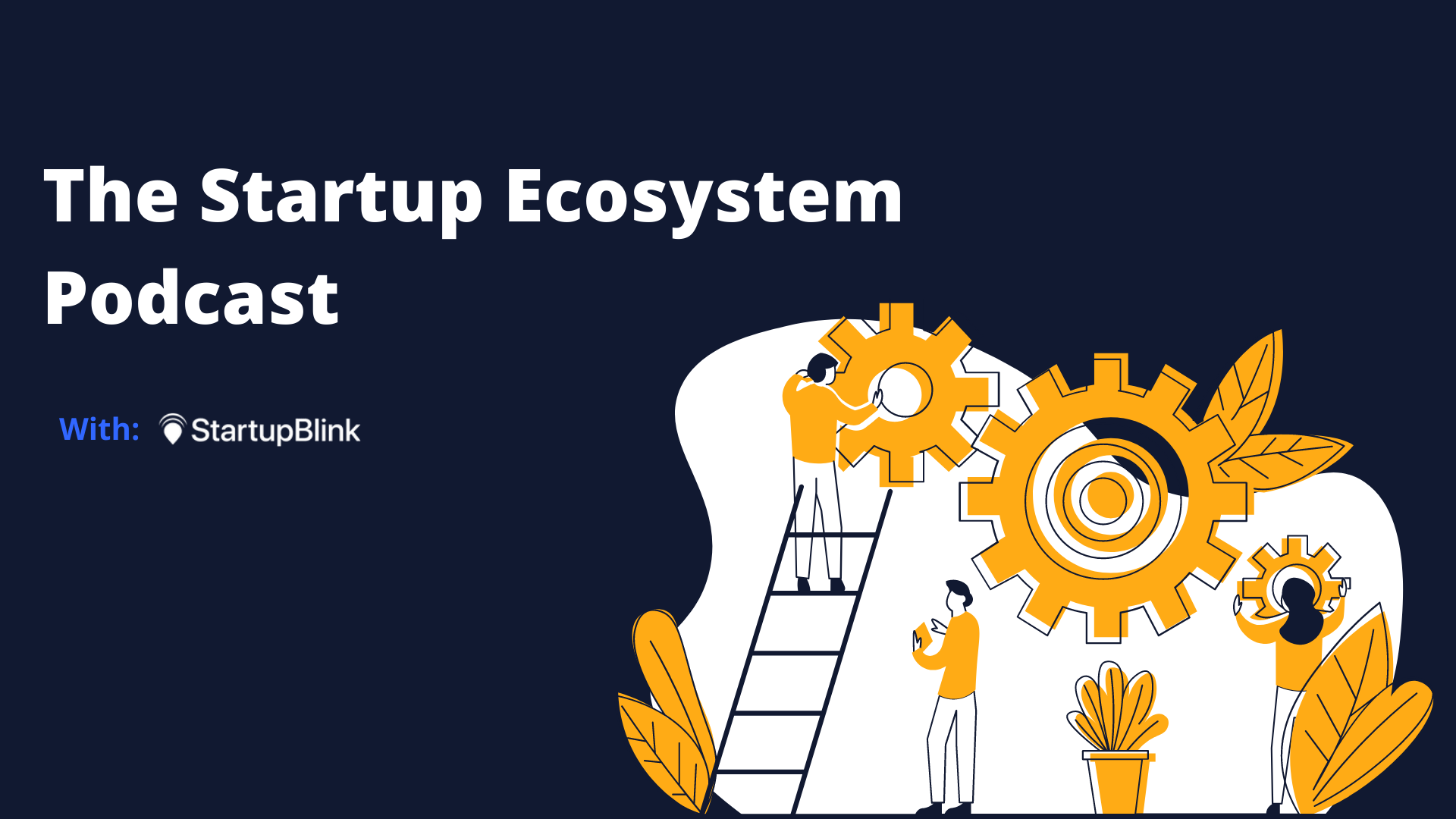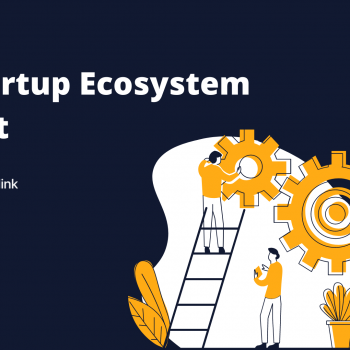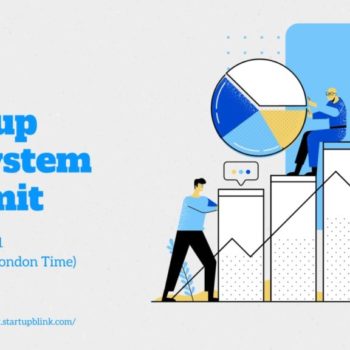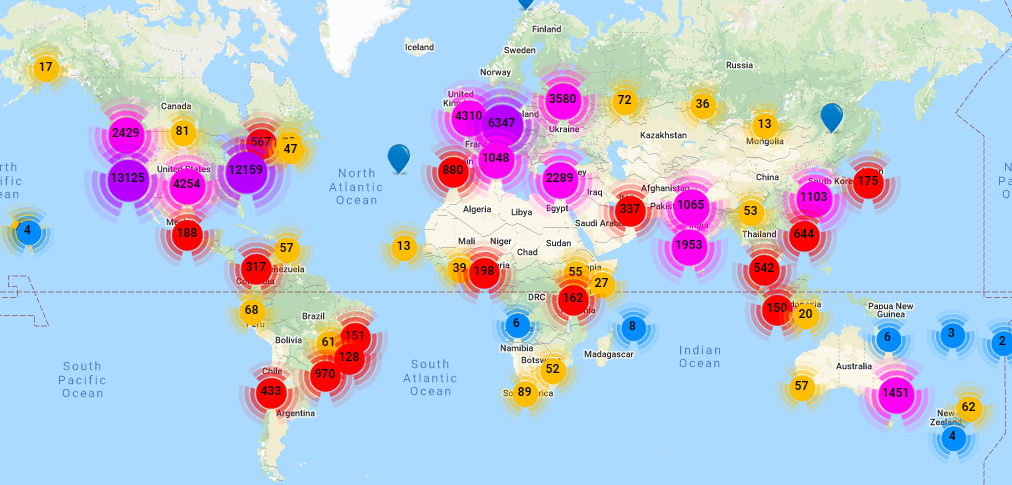Many might see Ecosystem Development as a task that falls under the government’s responsibilities. After all, they are collecting taxes and should invest them back into the development of a startup ecosystem. However, there are many cases in which the private sector is highly influential in the development of startup ecosystems.
In this episode, Eli David and the StartupBlink team discuss the role of private-sector ecosystem developers and what should be the optimal government involvement in ecosystem development. Listen to find an answer to “What is the role of private sector ecosystem developers?”
Private vs. Public Sector: Who is in charge?
There are three different scenarios while engaging in startup ecosystem development. It can be governments who have the money, it can be the private sector (individuals like founders, coworking spaces, or accelerators) who have the know-how or it can be a hybrid structure, where the government funds the private sector for the development of the ecosystem.
Eli David and his team approach this issue as a matter of size. In smaller ecosystems, governments do not really know how to accelerate their startup ecosystems. In that case, it is better to leave the floor to the private sector champions who possess the necessary skills and knowledge about ecosystem development. Government has two ways to follow in that case: either giving a budget to the private sector or contracting them to take the necessary actions. However, as the ecosystem grows, it is better for those activities to become in-house and take control in the hands of governments.
Two Spanish cities: Valencia and Malaga illustrate this issue well. In Valencia, a considerably large ecosystem, there is confusion about who is in control. There are lots of private sector ecosystem developers, but they do not have the budget or the resources to create an impact. On the other hand, Malaga has a special unit within the municipality that deals with startup strategy, which makes sense because the government has the vision and people to deploy it.
In the end, there is no one-size that fits all scenario. Eli David recommends the public sector to take control as the ecosystem grows. However, the value of the private sector should never be underestimated.
Explore startup ecosystems by geography and business region using the StartupBlink PRO Map
Why Private Sector Involvement is essential?
With StartupBlink’s experience in curating events for MeetUp communities, it is possible to conclude that most of them are done by the private sector. However, it is important to note that, almost all the time, the private sector collaborates with the public sector in organizing these events. Oftentimes, the public sector’s role is to fund the events or they are the exhibitor. According to Martin Jordana, StartupBlink’s community manager, the events that are initiated by governments are mostly in Nordic countries.
As Eli David highlights, there is a reason that governments delegates this kind of event to the private sector. First, an event has a lot of exposure and might create a negative reaction among the public. It is a huge responsibility and pressure for the government. Activities related to startups and ecosystem development should be better to be done by the private sector. Another problem with governments’ involvement in activities like accelerators or competitions as the decision-making mechanism may cause an allegation of corruption.
From the perspective of individuals, there are a lot of benefits in organizing events. Firstly, it is a way of making new friends and expanding your network. Secondly, when you organize an event, you become a connector, a valuable person for the ecosystem. Last, but not least, individuals get a lot of traction for their own startups. In the podcast, Eli David makes an important point by saying “When your ecosystem is underperforming, you should either leave it or lead it.” Taking an active role in ecosystem development is one way of leading your ecosystem. One additional recommendation is to avoid putting full-time effort into initiating events in the ecosystem. If government support is not there, at some point individuals realize that they are doing the job of the government without any support.

StartupBlink has 28 Groups with tens of thousands of members in its MeetUp Communities. If you are interested in sponsoring an event, contact us.
Avoid Cannibalism
Cannibalism occurs when the public sector initiatives kill the private-sector initiatives and that is bad for the ecosystem. If there are people already working on developing the ecosystem with coworking spaces or accelerators, it is critical that governments do not get involved in building similar things, because government initiatives are usually more attractive, since they do not have a profit-motivation. Compare for example the accelerators run by the public sector versus the ones run by the private sector.
Cohen, Susan, et al. (2019) ‘s research in the United States shows that graduates of government-sponsored accelerators do not experience a significant increase in the likelihood of raising funding relative to other sponsor types and raised significantly lower sums of capital post-accelerator.
For startups, it is a safe choice to go with a public sector accelerator as those will not require equity. In that case, people will lose interest in private-sector accelerators. However, as concluded by the research, government-sponsored accelerator programs are limited, and killing the private sector initiatives would also negatively affect the narrative of the ecosystem.
About Us:
StartupBlink is the world’s most comprehensive startup ecosystem map and research center, working with over 100 government entities worldwide. StartupBlink’s global startup ecosystem map has tens of thousands of registered startups, coworking spaces, and accelerators, creating a robust sample of innovation globally.
Listen on:







